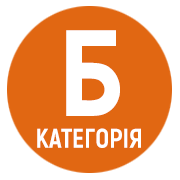THE POSITION OF RUSSIANS IN THE BALTIC STATES DURING THE FIRST DECADE OF RESTORED INDEPENDENCE
DOI:
https://doi.org/10.32999/ksu2786-5118/2023-44-1Keywords:
citizenship, minority, republic, nation, lawAbstract
This article analyzes the position and status of the Russian population of the Baltic states after the latter regained their independence. The purpose of the article is to analyze the position of the largest national minority in the Baltic States (russians), as well as the peculiarities of the resolution of the issue of their status by the governments of the specified republics. During the research, the methods of historical comparativistics, dynamics and statistics were used. Results of the article. The article notes that the three Baltic republics, after leaving the Soviet Union, inherited a complex, for their indigenous nations, ethnic composition of the population. This difficulty consisted in the fact that in Latvia and Estonia more than a third of the population of the republics were russians who arrived in these countries during their fiftyyear occupation by the USSR. Among the three Baltic republics, only in Lithuania the percentage of russians was not as significant as in the other two. That is why the government of this country provided an opportunity for russians who lived on the territory of this country to obtain citizenship without any particular problems. For Latvia and Estonia, the solution to this issue was of little national importance. Therefore, these two Baltic countries took a cautious approach to the issue of granting citizenship, with the restoration of their independence, and introduced a number of restrictions for this. Such restrictions were for foreigners as well as for all those who arrived in these countries during the Soviet occupation, primarily russians. The issue of the status of russians became the subject of interstate discussions between the Baltic states and the russian federation, which tried to resolve it through compromises. The support of the russian leadership of the Baltic russians contributed to the fact that they were able to continue living in these countries, albeit with limited rights, in the status of so-called “non-citizens”. This status was preserved for those who did not obtain the citizenship of Latvia and Estonia through naturalization. This made it impossible for non-citizens, primarily russians, to participate directly in the political life of these republics. Conclusions. Such a relatively strict policy of granting citizenship of the sovereign republics, the absolute majority of which were russians, did not prevent the three Baltic countries from joining NATO and the EU in the spring of 2004.
References
Всесоюзний перепис населення 1989 року: національний склад населення за республіками СРСР. URL: https://www.demoscope.ru/weekly/ssp/sng_nac_89.php?reg=0 (дата звернення: 10.11.2023).
Закон про громадянство. 1994. URL: https://faq.germany.ru/gus.db/items/41.html?op= (дата звернення: 08.11.2023).
Закон про громадянство. 1998. URL: https://faq.germany.ru/gus.db/items/41.html?op= (дата звернення: 07.11.2023).
Історія Латвії ХХ ст. / Блейере Д. та ін. Рига : «Юмава», 2005. 500 с.
Росія і Прибалтика: доповідь Ради по зовнішній та оборонній політиці. 1998. 28 с.
Симонян Р. Прибалтика в контексте распада СССР. Полития. Вып. 1. (28). Весна, 2003.
Nohlen Dieter & Stöver Philip. Elections in Europe: A data handbook, 2010. p. 1201.



